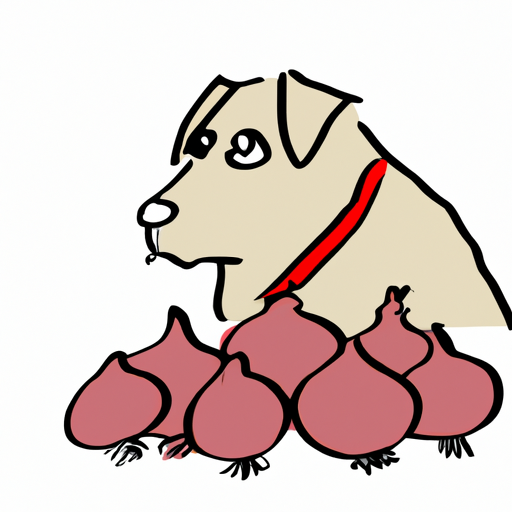1. Understanding the Risk
As a caregiver for your beloved pet, you may often find yourself wondering about the safety of certain foods. Among those, onions might be a frequent guest on your dinner plate, but should it be a part of your dog’s meal too?
Onions, whether raw, cooked, or dehydrated, are a definite no-no for your canine friend. You may ask, “Why?” The answer lies in the presence of a compound called N-propyl disulfide.
2. The Culprit: N-Propyl Disulfide
This substance, found in onions, can lead to a condition known as Heinz Body Anemia in dogs. This form of anemia is serious, causing the red blood cells to burst, leading to a host of health issues. Here’s a simple table to illustrate the problems:
| Compound | Effect |
|---|---|
| N-Propyl disulfide | Leads to Heinz Body Anemia |
3. The Symptoms
If your dog has ingested onions, watch out for these symptoms:
- Weakness and lethargy
- Reduced appetite
- Dark-colored urine
- Rapid heart rate
4. The Treatment
If you suspect that your dog has eaten onions, don’t panic. Reach out to your vet right away. They may induce vomiting or use activated charcoal to eliminate the toxins. In serious cases, blood transfusions might be required.
5. Prevention is Better than Cure
To keep your furry friend safe, follow these steps:
- Keep onions out of your dog’s reach
- Be cautious with food scraps
- Educate yourself about other harmful foods
Frequently Asked Questions
Can dogs eat any amount of onions safely?
No, there’s no safe amount of onions for dogs.
What about onion powder?
Onion powder is also toxic for dogs.
Are other members of the onion family harmful?
Yes, garlic, leeks, and chives are also toxic for dogs.
What if my dog accidentally eats onions?
Contact your vet immediately.
Remember, as a caregiver, your pet’s health depends on you. Stay informed and keep them safe.



